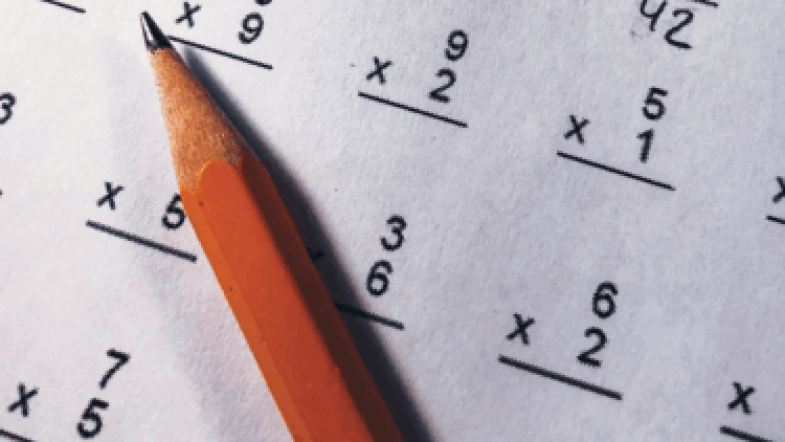
A team of researchers used a wide range of machine learning approaches to identify the personal and contextual factors that differentiated the lowest-performing students from other Filipino students in mathematics, both in public and private schools.
In the 62nd International Math Olympiad held in April this year, all six members of Team Philippines won a medal in one of the most prestigious mathematics competitions in the world. The country ranked 23rd out of 107 countries, a big leap from three years ago when the PHL delegation placed 43rd overall.
While this is good news, the same cannot be said about the overall situation of students’ mathematics proficiency in the country. The results of the Programme for International Student Assessment (PISA) in 2018 highlighted the overall state of Filipino students in math: The Philippines was second to the last in the subject among the countries that participated in the large-scale assessment.
According to the said study, 54.6% of Filipinos aged 15-16 years old scored below the lowest proficiency level. This showed that Filipino students have inadequate skills in mathematics compared to the same age group in other countries.
Against this backdrop, faculty members from the Br. Andrew Gonzalez FSC College of Education (BAG CED) and the Dr. Andrew L. Tan Data Science Institute (ALTDSI) formed a research team that aimed to identify the personal and contextual factors that differentiated the lowest-performing students from other Filipino students in mathematics, both in public and private schools.
The research was one in a series of collaborative DLSU studies that sought to mine invaluable insights from the PISA data. For this study, BAG CED Department of Science Education faculty member Dr. Minie Rose Lapinid was the first proponent, together with ALTDSI Executive Director Dr. Macario Cordel II, ALTDSI researchers Jude Michael Teves, Sashmir Yap, and Unisse Chua. They were led by Department of Psychology Distinguished Professor and Academician Dr. Allan B.I. Bernardo. This research was supported by the Angelo King Institute for Economic and Business Studies.
Bernardo and the team’s other PISA-related research projects include a study on reading, with BAG CED Associate Dean Dr. Rochelle Irene Lucas as the first proponent, and a study on science, with Department of Psychology faculty member Dr. Marissa Calleja serving as the first proponent.
Lapinid shared that the team first identified which of the many variables in the PISA survey could be considered factors in mathematics performance.
They used a wide range of machine learning approaches to analyze the PISA data from separate questionnaires for students and schools. Through the machine learning approach, they were able to note factors such as the student level and the role of family, as well as the teaching approach and other school characteristics. They discovered the complex, interrelated factors that related to the level of performance of math learners.
“The best model that we got was Random Forest, which is a combination of many decision trees. It basically looks at the wisdom of the crowd and we were able to get a score of 80%. This means that in a profile of the student, there is 80% certainty that the student will perform well or not,” Teves explained.
In both private and public schools, results showed that there were three variables that relate to poor performance in mathematics: low number of cell phones with internet access, low expectations of finishing a vocational degree, and low parental occupations. This meant that apart from the lack of educational gadgets and poor connectivity—which were usually identified with underachievers—Filipino students showed a low expectation of finishing postsecondary vocational education.
Moreover, poor performers from public and private schools who both have parents with low- status occupations have different occupational aspirations. Private school students seek better occupations versus those from public schools.
“Aspiring higher occupation goals among the poor-performing private school students may probably mean they want to study in college over finishing a vocational course, while public school students with lower occupational aspirations may mean they are less optimistic about finishing a vocational course, much less earning a college degree,” the research team noted.
The research team gave the following policy recommendations: Early identification of students at risk and mitigation of likelihood of failure; sustain and intensify the efforts of LGUs and private sector in providing devices and of telecom companies in expanding access, affordability, and speedy internet connectivity in remote areas; and development of school-based interventions to assist students to plan school and life goals and targeting higher-status occupations.
They also stressed the importance of upskilling and reskilling math teachers to be able to work effectively with students who are at risk of failing and to impart the value of the subject to help attain their career aspirations. Educational institutions should also maintain the engagement of parents to monitor learning behaviors at home, keep the active participation of students in school activities, impress the value of persistence in dealing with difficult subjects, and appreciation of children’s higher education and career goals.
Lastly, the authors impressed the need to review pertinent practices and policies in the basic
education system such as structure and density of the curriculum as well as time allocation per subject, assessment, retention, and promotion systems, teachers’ workload and class sizes, and teachers’ performance appraisal and incentive system. These recommendations were published in the AKI Policy Brief.
Lapinid emphasized the need to have a collective will for Filipino students not just to do well in the next PISA survey but also to improve in learning Math, as well as other subjects.“Students should strive, parents should be involved, administrators should be proactive, and policies should be in place to serve as guidelines.”
Contact: Dr. Minie Rose Lapinid | minie.lapinid@dlsu.edu.ph













